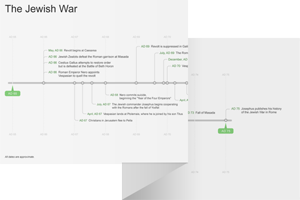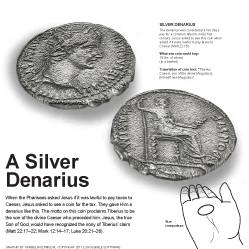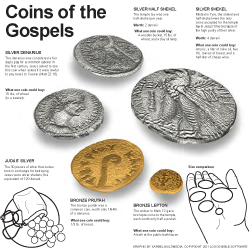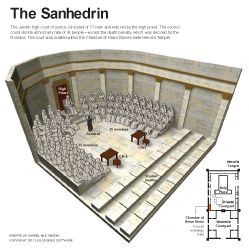22:2 the kingdom of heaven See note on Matt 3:2.
a wedding celebration Festivities for such an event would have lasted several days. In this parable, Jesus alludes to the great end-times feast (compare 8:11 and note), when God’s people will enjoy fellowship with the Messiah in His fully inaugurated kingdom (compare Rev 19:6–10).
22:3 they did not want to come Refusing such an invitation from the king was a shocking insult. These invited guests represent those who respond to the message of the kingdom of heaven with indifference (Matt 22:5) and hostility (v. 6).
22:7 burned their city Foreshadows the Romans’ destruction of Jerusalem in ad 70.
22:11 not dressed in wedding clothes This man accepted the king’s invitation, but on his own terms—which the king found improper.
22:13 weeping and gnashing of teeth Reactions of great anguish. This signals that Jesus is talking about a time of judgment—likely upon His return (see note on 8:12).
22:14 For many are called but few are chosen Summarizes the theme of the preceding parables (21:28–22:14). God invites many people into His kingdom, as seen in the parable Jesus has just told (vv. 1–13). However, as the man thrown out of the wedding feast illustrates (vv. 11–13), not all who consider themselves part of God’s kingdom are genuine members of it (compare 7:13–14, 21–23). Those who hear and respond favorably to God’s invitation are able to join him in celebration (compare 25:31–46).
22:15–22 Using a question about taxes, the Pharisees |
22:16 Herodians Likely refers to Jews who supported Herod Antipas
who supported Herod Antipas and, by extension, Roman rule. This is the only mention of this group in Matthew’s Gospel.
and, by extension, Roman rule. This is the only mention of this group in Matthew’s Gospel.
we know that you are truthful This flattery is intended to provoke Jesus into criticizing imperial taxes.
22:17 Is it permitted to pay taxes to Caesar A clever query. Answering yes could discredit Jesus among the people for supporting the empire; but answering no would incriminate Him for opposing it.
22:21 give to Caesar the things of Caesar Jesus brilliantly avoids the Pharisees’ trap (compare note on v. 17). Since the coin bears Caesar’s image, it belongs to him. However, God should likewise be given His due—the faithful obedience of humanity, which bears His image (Gen 1:27).
bears Caesar’s image, it belongs to him. However, God should likewise be given His due—the faithful obedience of humanity, which bears His image (Gen 1:27).
22:22 they were astonished Even His opponents marveled at His brilliant answer. He appeased the Herodians, who had political interests, and satisfied the Pharisees,
who had political interests, and satisfied the Pharisees, who were concerned with legal and national matters. Neither side could contest His reply.
who were concerned with legal and national matters. Neither side could contest His reply.
22:23–33 The Sadducees ask Jesus a question about the future resurrection of the dead (a belief they did not support). |
22:23 Sadducees This Jewish group apparently based its doctrine on the Pentateuch alone (see note on Mark 12:18).
who say there is no resurrection The Sadducees present what they think is a fanciful scenario to show the ridiculousness of believing in the resurrection —only to have Jesus prove the validity of being raised from the dead.
—only to have Jesus prove the validity of being raised from the dead.
22:24 Moses said The Sadducees appeal to Moses as the mediator of the law. See Deut 25:5–10.
as the mediator of the law. See Deut 25:5–10.
22:28 In the resurrection See Matt 22:23 and note.
22:29 the scriptures Refers in this case to the law, to which the Sadducees had appealed.
22:31 was spoken to you by God They appealed to Moses, but Jesus appeals to God Himself, who spoke to Moses.
but Jesus appeals to God Himself, who spoke to Moses.
22:32 I am the God of Abraham Jesus quotes Exod 3:6 (which, as part of the Pentateuch, was authoritative for the Sadducees; see note on Matt 22:23). This verse reports God’s self-revelation to Moses at the burning bush. By saying “I am” (rather than “I was”), God indicates that His relationship with the patriarchs is ongoing even after their deaths—which supports a future resurrection (compare Rev 20:4–6, 11–15).
22:34–40 The Pharisees |
22:36 which commandment is greatest Among ancient Jewish legal experts, there was an ongoing attempt to prioritize the commandments. Their debates considered which laws were “light” and which were “weighty.” In this case, their goal was not to gain insight from Jesus but to induce Him to say something they could use to discredit Him.
22:37 You shall love the Lord your God A citation of Deut 6:5.
heart The heart, soul, and mind collectively represent the whole person; one should love God with total love and devotion.
22:38 the greatest and first commandment Deuteronomy 6:5 also was one of the best-known commands, as it was part of the Shema—an ancient prayer recited by Jews twice every day. See Mishnah Berakhot 1:1.
22:39 You shall love your neighbor as yourself Jesus is referencing Lev 19:18 (compare Matt 7:12).
22:40 depend all the law and the prophets The commands to love God and others do not replace the instructions of the Law or the teaching of the Prophets. Rather, obedience to this twofold commandment fulfills the essence of their teaching.
22:41–46 Jesus asks the Pharisees a textual question, which he expects they will easily answer as teachers of the Jewish scriptures (see note on 1:1). |
22:41 while the Pharisees were assembled They are assembled for the purpose of testing Jesus (see v. 35).
22:44 The Lord said to my Lord “The Lord” refers to Yahweh; “my Lord” refers to the Messiah. See Psa 110:1.
your enemies under your feet In the ancient Near East, warriors would stand on the necks of their defeated enemies as a sign of victory (e.g., Josh 10:24).
22:45 David calls him ‘Lord,’ how is he his son Jesus’ question hints at His messianic identity, as the crowds had recently hailed Him as the “Son of David” (Matt 21:9, 15).

|
About Faithlife Study BibleFaithlife Study Bible (FSB) is your guide to the ancient world of the Old and New Testaments, with study notes and articles that draw from a wide range of academic research. FSB helps you learn how to think about interpretation methods and issues so that you can gain a deeper understanding of the text. |
| Copyright |
Copyright 2012 Logos Bible Software. |
| Support Info | fsb |
 Loading…
Loading…





